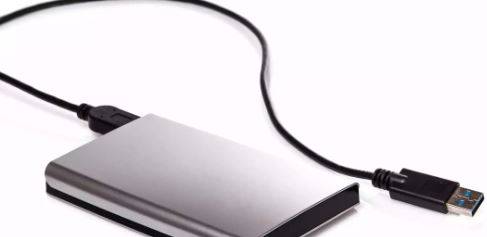Computers and their components are very delicate and sensitive gadgets. A slight mistake can cause some of these components to be damaged or the whole computer to be damaged. There is a need to make sure to protect all computer components, both hardware and software.
Today, I am going to share with you some of the best ways to protect an external hard drive from damage. The main purpose of an external hard drive is to back up files, but it is also great to have an external hard drive if one doesn't have a personal computer or a laptop. An external hard drive is also the best way to store some photos or vital documents for future use.
1. Physical damage
Honestly, what damages external hard drives most is physical damage. Falling down or sitting on it are two major causes of damage. Other factors also contribute to its damage; these are dust, dirt, water, power fluctuations, etc. Avoiding all these physical ways or causes of damage will help your external hard drive last a long time.
2. Prevent overheating.
Overheating is also one of the main causes of external hard drive damage. Overheating will sometimes cause the drive to burn. So make sure to check how much power you put into your external hard drive.
What causes the overheating in hard drives is the continuous spinning, so limiting it or stopping how it spins is very important. Check out the diagram below.
How to spindown an external hard drive
3. Avoid overloading
People love to load their external hard drives with all sorts of irrelevant or unwanted data. Some people like to keep gaming software or the latest series or movies on their drives without thinking about where the file was loaded or downloaded from.
Make sure to remove all unwanted data or files from the drive to remove the wear and tear and protect it from overfilling.
4. Carefully remove from connectors or other devices
Many people are fond of just removing an external hard drive or a USB device after connecting it to a device. Know that it should be removed carefully from where it has been connected. Don't pull it abruptly to damage the lid or the mouth of the USB. It is also better to check if the USB connector is damaged before plugging in or connecting yours.
5. Constantly check the health of the drive
The external drive also has things that worry it or damage it naturally without going through any of the above-mentioned causes. You can try to take care of its health with the help of some programs.
Using programs such as chkdsk and S.M.A.R.T. can be a great help to stop your external hard drive from being damaged. You can remove any problems found when you run a diagnostic test on the external hard drive with the above programs.
6. Handle with care by choosing your surface carefully
Choosing a surface to put your external hard drive on is also very important. You can't just stand up and put it anywhere. First, you need to check if there is no water or any liquid close to it. Also, don't just throw it anywhere because it is fragile and contains important files as well.
Make sure to keep it in the right place by placing it on a flat surface or a higher surface when there is a child in the house. Don't put it on a flip or slippery surface, as well as avoid exposing it to sunlight too much, as it can also cause overheating.



No comments yet
Be the first to share your thoughts!